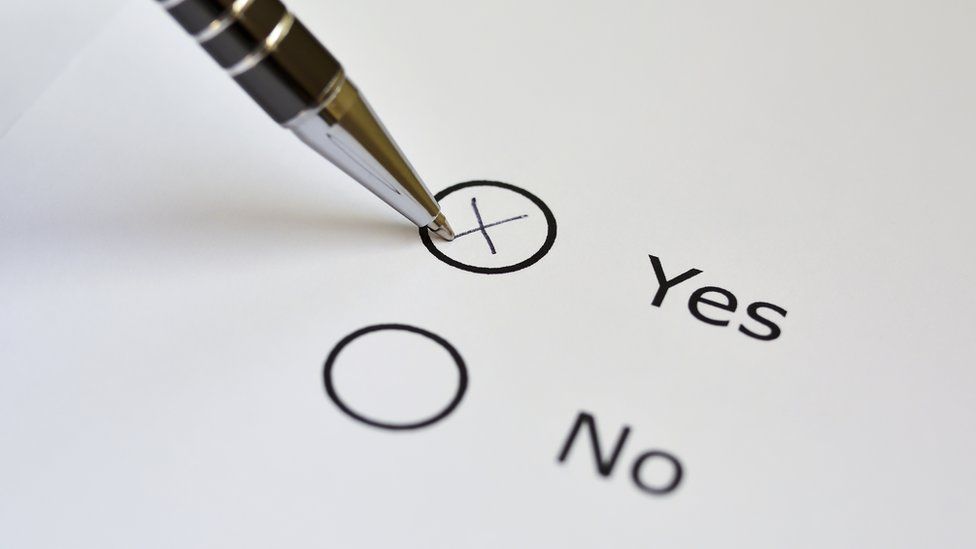The risky business of the referendum
- Published

"Power to the people!"
Oh, I see.
Well OK, not too much power then.
Across the world, political establishments are relearning an old lesson about the risky business of running a referendum.
A single-issue question, asked of angry disillusioned voters in an age of political rebellion, is always likely to produce some unexpected results.
Brexit in the UK was obviously one. The then Prime Minister David Cameron was convinced he had it in the bag - and look what happened to him.
And just last week the Colombian President Juan Manuel Santos asked the people if they approved of peace. After years of negotiations with Farc rebels, and decades of war, how could they possibly say no?
But they did.
Complex agreements are sometimes reduced to gut instincts. "Yes or no" can be a divisive question - often lacking the compromise and balance needed to forge a parliamentary majority.
Even winning a referendum on paper can be portrayed as a defeat, because it can underline divisions in society over which leaders would prefer to draw a veil.
Prime Minister Viktor Orban's call for Hungary to reject the EU's refugee quotas was approved by nearly everyone who voted. But a majority of Hungarians stayed at home, unwilling to act as foot soldiers in Mr Orban's cultural war with Brussels.
The referendum has always had a bit of a chequered history, as a device beloved of dictators from Napoleon to Hitler. It was a referendum in 1934 that merged the posts of chancellor and president of Germany, handing the Nazi fuehrer absolute power.
On the other hand, referendums have also been an important part of the quest for self-determination. Sometimes accompanied by violence, but also the cause of great rejoicing in many parts of the world - creating new countries from East Timor to Montenegro to South Sudan.
And in some well-established political systems, referendums have long been part of the furniture. The Swiss hold them all the time - nearly 200 in the last 20 years - on everything from building tunnels to tax policy to (yes, it pops up again) immigration.
Many states in the USA do the same thing. It's direct democracy, built into the system and what could be fairer than that? "We, the people" will have our say.
But what does it mean for the role of parliaments or legislatures and politicians who, however unpopular they may become, have been elected by those same people?
Critics see it as an abdication of responsibility, with all the danger that implies: a chance for populism to take centre stage, bypassing institutions that have been carefully created to provide democratic balance.
But therein lies the problem. In much of the world politics has become a dirty word and a referendum has become a chance to stick two fingers up to the system.
Arguments are magnified on social media, where half-truths and conspiracy theories jostle for attention with facts and simple slogans often win the day.
So political leaders are learning not to take anything for granted - and that's got to be a good thing. Complacency has taken a kicking.
But you would do well to get used to this new age of referendums, because they are going to keep on coming.
If the Brexit vote wasn't enough for you, there's another one looming in Europe that could shake things up in unpredictable ways.
The Italian Prime Minister Matteo Renzi has vowed to resign if he fails to get constitutional changes approved by the electorate in a referendum in December.
Political instability in Italy is probably the last thing Europe needs.
But it is the people who will decide.
- Published3 October 2016
- Published3 October 2016
- Published22 August 2016
- Published24 June 2016
- Published19 September 2014